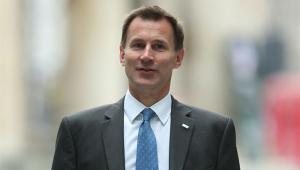The Independent Mental Health Services Alliance’s (IMHSA) research used data from a variety of sources including NHS England and the Department of Health. Its analysis found that, as well as high demand, mental health services are suffering from mounting financial constraints, with the average deficit of NHS mental health trusts increasing by 6.3% over the last two years.
IMHSA chair Joy Chamberlain said: “Demand for mental health services is high at a time of funding constraints. This is creating difficulties for patient access to care.
“However there is consensus on the need to achieve parity of esteem for mental health and ensure patients get the mental healthcare they need, when they need it.”
She described this as a “laudable aim”, but added that it will rely on partnerships between NHS and independent care providers to tackle barriers to access.
Thirty one mental health trusts were in deficit in the first quarter of 2015/16 and over a third are currently experiencing high occupancy rates. Between 2013/14 and 2014/15 the average number of days of delayed discharge per month increased by 22.2%.
A recent analysis of services by the King’s Fund found that, as funding has been slashed, mental health trusts have taken to implementing unchecked reforms to reduce costs. The think-tank called for more and steadier funding to ensure the changes and their impact could be properly evaluated.
Breaking Down Barriers: Improving patient access and outcomes in mental health also warned that historic disinvestment in the area needs to be addressed and services need to be funded fairly.
It said NHS England should set out pricing rules to take account of the different cost base for mental healthcare, and introduce waiting time standards for all mental health inpatient services.
It should be a requirement that urgent referrals for admission are fully funded, the report posits, and without regard to any centrally imposed moratorium on new beds.
Finally, NHS England should encourage NHS providers and the independent sector to collaborate and offer integrated solutions for patients.
“Partnership, working alongside the other recommendations, will ensure we improve patient outcomes and access to mental healthcare. We hope that NHS England will support providers in this task and drive the improvements that patients need.”
An NHS England spokeswoman said until now mental health had been the "poor relation" in the health service but this year marks a "turn around", with investments in mental health care increasing far quicker than in previous years and by a much higher precentage than in other services.
She said local clinical commissioning groups will increase their mental health spending by 5.4% even though their overall budgets will rise by just 3.7% ‒ "a decisive move towards a parity of esteem".
NHS England is also planning on introducing waiting times standards for mental health care "for the first time in 25 years" in April, she added.



















